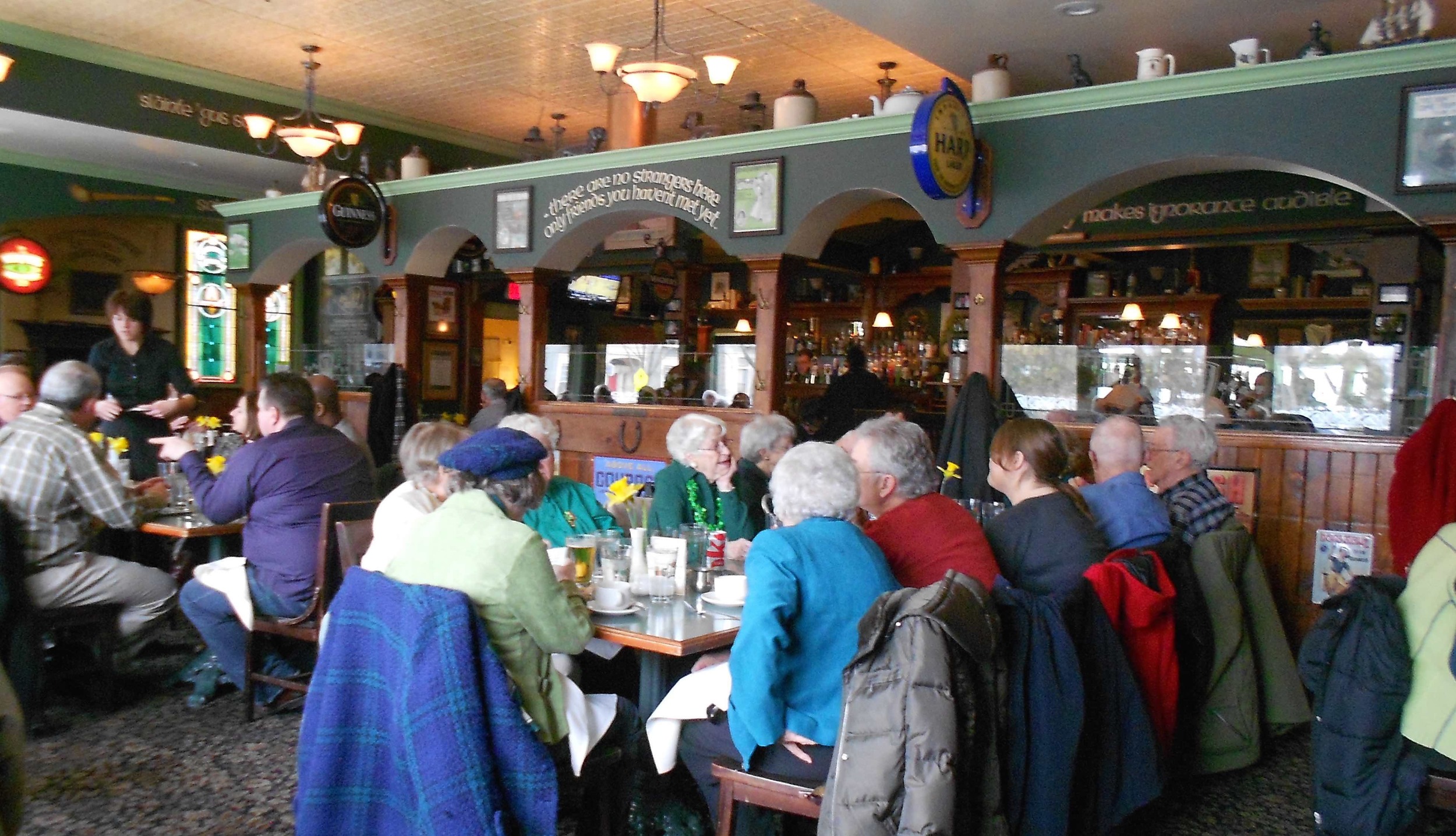The Restaurant Factor
County Clare Irish Pub, one of my favorite spots in Milwaukee, WI
One of the factors that gets brought up a lot in discussions of great neighborhoods is restaurants. It’s both easy to see why these make a neighborhood great, but also easy to dismiss them as a serious factor in neighborhood strength. Restaurants sound like a nice addition to an area, but they’re viewed sort of like a throw pillow on a couch; the couch would be just as comfortable and probably look fine without the pillow.
Additionally, restaurants (along with bars and breweries) are always included in those silly lists of “things millennials want in a neighborhood,” which makes them even easier to dismiss. These articles always frame it as: Young people just want spots they can walk to and foolishly fritter away their disposable income (which they don’t really have).
Good Restaurants = Neighborhood Success
I would actually argue that good restaurants are essential to neighborhood success, and here are four reasons why:
1. Everyone eats
This is the first point I want to make because I don’t want you to write this article off as elitist. Restaurants are not elitist. Everyone eats. Even the poorest in our communities still eat out on occasion. (I saw this plenty of times when I worked for a local homeless shelter last year.) Of course, a five-star French bistro is not a restaurant that everyone can afford to eat at, but in general, restaurants can be affordable for a majority of a community, and many are.
That makes them a unique communal location. Restaurants are something that nearly everyone in a community can enjoy, at one price point or another. We all have to eat and most people choose to eat out on occasion. Neighborhood restaurants thus provide an essential local spot in which to do that.
A bagel and coffee from Nussbaum & Wu, my favorite NYC deli
2. Restaurants are a point of neighborhood pride
During the Final Four phase of our Strongest Town Contest, one of the questions Chuck Marohn asked each town representative during his interviews was, “If I were to visit your town for the day, what would you recommend I do and where would you recommend I go?” Every town representative mentioned food. For many that was the first thing they brought up. They talked about local Italian delis, favorite diners where community members gather, farm-to-table cafes, and so on. Restaurants were unanimously a point of neighborhood pride.
They are for me too. If someone asked me “What do you love most about your neighborhood?” local food would be on the top of my list. It doesn’t matter if we’re talking about my go-to cheap breakfast spot or my favorite date night wine bar, this is what I get excited about. Like a beautiful park or a popular music venue, restaurants are something we are all able to point to and say, “This is something I’m proud of in my neighborhood.” That's worth a lot.
3. Restaurants make your neighborhood a destination
Restaurants aren't just important for residents of a neighborhood as a point of pride, they're also valuable for outsiders. When a friend or family member decides to visit me from out of town, the first question on my mind is: Where should I take him/her to eat? I have so many excellent choices in my area.
Restaurants are a unique drawing point for people outside the neighborhood. For example, there’s an upcoming event in my city in which several black-owned restaurants will be highlighted on a weeklong food tour. Many of them are in fairly segregated, African American neighborhoods where a majority of white people in my city have probably never been. This event—the pull of good food—gives people a chance to step outside their daily routine and sit down to a good meal while supporting a local restaurant-owner in the process. Restaurants are a simple way to gain entry into a community and begin to get to know it.
A delicious spread of Korean food from K-town in New York City
4. Food is how we gather
This is the most important point of all. Food is the way we come together, to celebrate our successes, to nourish our bodies, and to spend time with friends and family. It’s Sunday dinner with your neighbors. It’s Friday ice cream after the high school basketball game. It’s Tuesday lunch with your coworkers at the sandwich shop. So many important moments in our families and in our communities happen around the table. Without restaurants, we miss many of those opportunities.
The restaurant business is tough, but it is also a business that has been around for centuries, providing incomes for millions of cooks, dishwashers, waiters, farmers, and families across the globe. It is often one of the most viable business options for new immigrants to this country. (Next week, you’ll hear from a community leader who is helping local ethnic restaurants—many of which are owned by immigrants—organize to improve their neighborhood.)
There will always been a need for food and skilled people to prepare it. Our neighborhoods cannot do without those people and their product.
That's why I see restaurants as a truly essential part of any good neighborhood and any Strong Town.
(All photos taken by the author. Top photo of Schwartz's Deli in Montreal.)







